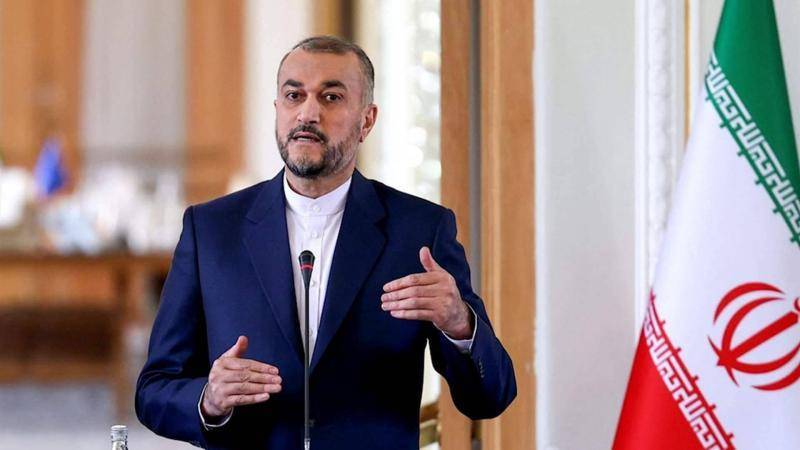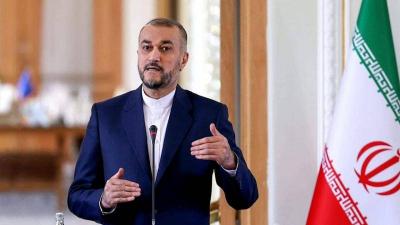There are no reassurances or imminent agreements. Various scenarios emerge against the backdrop of the deteriorating situation in Gaza and the city of Rafah, none of which indicate that a solution is close to being announced. Contrary to last week, when discussions advanced about a framework to cease fire. However, those in charge are looking towards a settlement, and this is what Iranian Foreign Minister Hossein Abdollahian communicated to the officials, as he carried with him the developments of the negotiations and the details of the proposals presented to cease fire, as reported by "Nidaa al-Watan."
The Israeli insistence on invading Rafah, making its fate similar to Gaza, could drag the region into a comprehensive confrontation, thus displacing Palestinians who have already been displaced from Gaza and pushing them towards Sinai "or to other places" in Jordan, which would signify the beginning of the end for the Palestinian cause. In the scenario that Israel is pursuing, control over Rafah, then Gaza, and the expulsion of Palestinians—except for a small number who remain under its control—would follow. Subsequently, it would transfer its war to southern Lebanon through a rapid military operation executed after securing and bolstering its northern borders with the presence of several brigades from the Israeli army. Israeli Prime Minister Benjamin Netanyahu is looking for a way out of his crisis, which he believes he can only find by achieving a military objective from Gaza to southern Lebanon. This scenario is met with maximum preparations from Hezbollah, which remains committed to the words of its Secretary-General, Hassan Nasrallah, that it will not allow Hamas to fall. If Israel proceeds with its plan to eliminate Hamas, the threat will multiply, forcing the resistance axis to engage in a broader war.
According to "Nidaa al-Watan," those involved describe the situation as extremely dangerous, where there is neither a comprehensive war nor a matured settlement. The balance of settlements may be ahead of the probabilities of war, but its characteristics remain unclear as the parties seek to improve their conditions on the ground.
During his visit to the region, Iranian Foreign Minister Hossein Abdollahian carried a summary of the proposed solutions discussed with the Americans through Omani mediation, and the outcome of what Hamas communicated about the meetings in France and Egypt regarding the framework agreement to cease fire. A short time ago, Iran received an American offer for a comprehensive settlement from Gaza to Lebanon, then Syria, Iraq, and Yemen, based on a two-state solution, with the condition of stopping the war in Gaza as a precondition for discussing other matters. Iran does not negotiate on behalf of its allies, but coordinates with them, leaving them to assess the situation and make appropriate decisions.
Simultaneously, possibilities were discussed should the Israeli government insist on entering Rafah under the pretext of releasing prisoners, especially since the United States has granted it cover by stipulating that its entry should be based on prior planning. If Israel attacks Rafah and achieves its military objectives, it would place the axis in a difficult predicament, as the fall of Rafah would mean the fall of Gaza and a transition to other fronts, the first of which is Lebanon where a catastrophic scenario could unfold with Israel launching a series of successive airstrikes on Lebanon without advancing its forces into Lebanese territory.
However, this scenario is countered by another from the resistance axis, stating that Netanyahu's actions will lead to a comprehensive war to protect his future. Therefore, dealing with reality will be extremely cautious, but if the expansion of the war is inevitable, Israel will be surprised by the level of military conflict it will face and the type of weapons used.
This is the most challenging month since the beginning of Operation Deluge, as it will either result in a major settlement or a comprehensive war. The cards of the game are in different hands, each with its own goals and objectives. It is certain that all parties, except Netanyahu, want to reach a ceasefire, and it is not ruled out that pressure will be exerted on Hamas to accept the agreement in exchange for international and regional guarantees, rejecting the Israeli demand to transform it into a political party.
"Hamas," which executed the Al-Aqsa Deluge operation without consulting its allies, received a decisive response from them regarding the negotiations by agreeing to what it deems appropriate. The axis will prevent Hamas from collapsing, but it leaves it the freedom to decide on the terms of any agreement reached with Israel under the auspices of Egypt and Qatar and with direct participation from the U.S. and France.
The picture will become clearer in the anticipated meeting today in Cairo, completing the negotiations, which will result in a more flexible agreement than that discussed initially due to everyone's need for a settlement, including the United States, which is preparing for its elections with Netanyahu complicating its position, and Egypt, which will face increased economic burdens due to the influx of Palestinians. As for Iran, it has not stopped its negotiations with the Americans, which is, in itself, an indication of its desire to reach a settlement that will see Lebanon as an essential part after Gaza.




